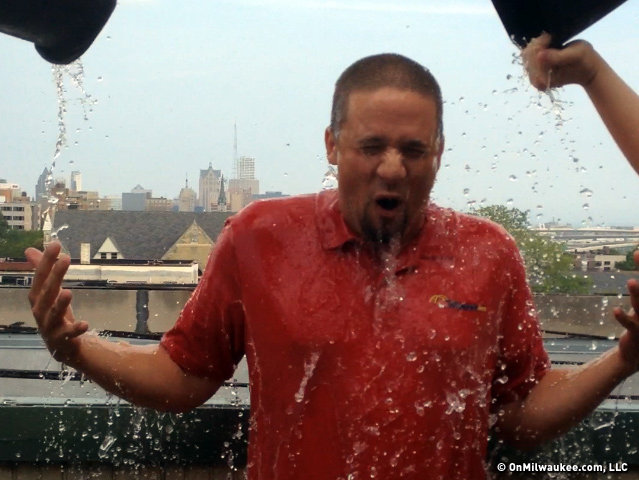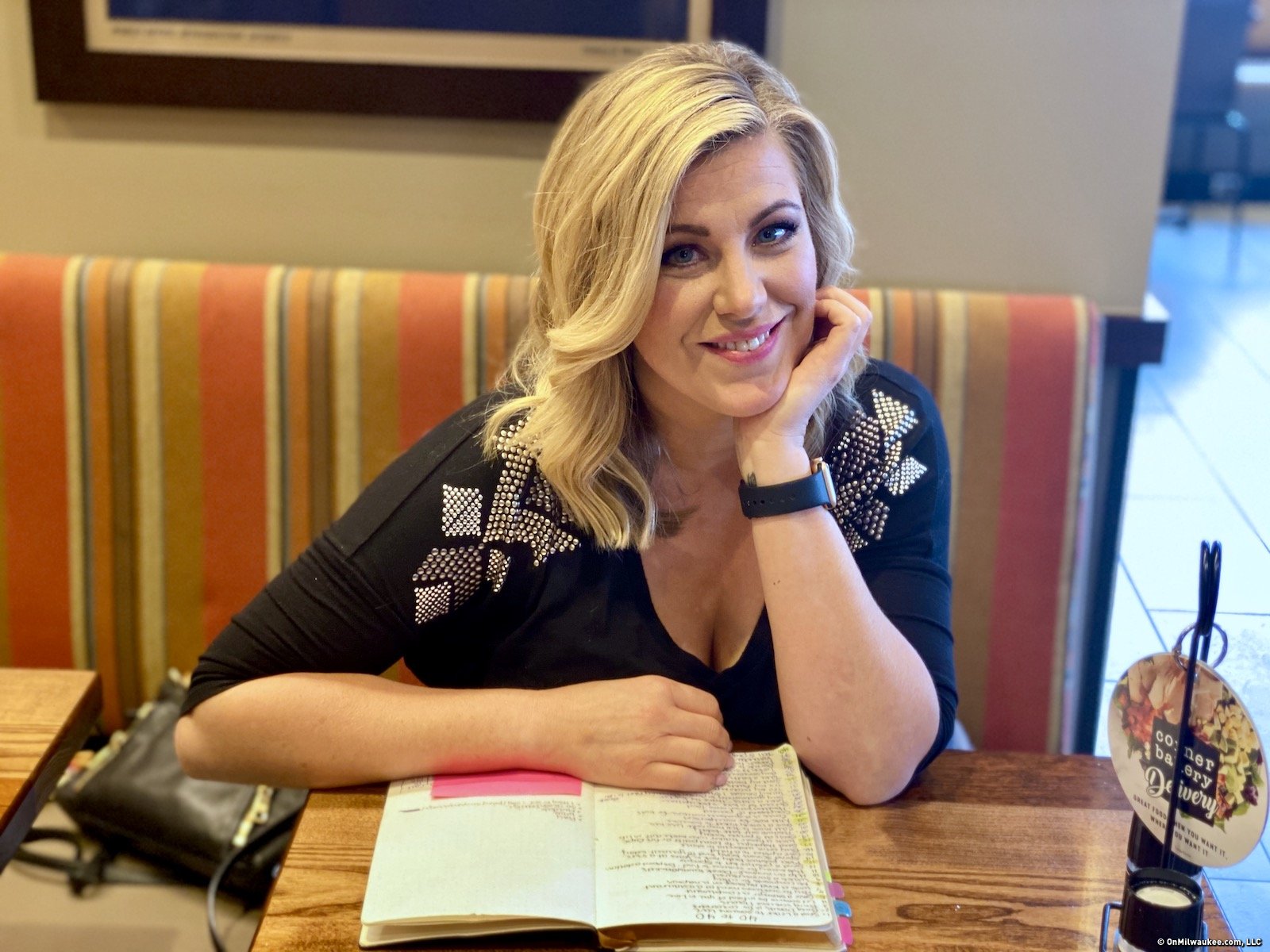If you work at a non-profit, you are, no doubt, watching the #IceBucketChallenge with great interest. You may be wondering how you can make a similar initiative work for your organization.
You can’t.
This is one of those anomalies in fundraising, something that can’t be converted into any usable, repeatable template. It just isn’t workable.
After the Haiti disaster, the Red Cross directed people to text-to-donate raising millions of dollars in doing so. Other non-profits joined the text-to-donate bandwagon and quickly realized that, no pun intended, the Red Cross’ initiative had been a perfect storm in fundraising—just the right conditions created to allow thousands to donate millions of dollars.
It’s rare, but it does happen. We’re watching it happen this summer. But other non-profits shouldn’t be looking hard at the Ice Bucket Challenge and be trying to replicate it.
They should, though, be looking at the Ice Bucket Challenge and replicate what the ALS Association has done to allow the initiative to be successful.
Americans tire easily and quickly of copy cats. Further, Americans are, by nature, bandwagoners. If you don’t capture everyone, you’ll have haters—a loud, boisterous, minority of haters.
These two things, at least in my opinion, are the lessons non-profit community managers and development staff should take away from this viral sensation—first, recognizing that some fundraising initiatives just cannot, and should not be replicated, but if they do, how can you best harness them; and second, how to handle your haters and detractors.
How It Started
It’s important to note that most viral fundraising initiatives which have taken place in the last few years did not actually start with the non-profit organization itself. With text-to-donate, Mother Nature herself created the situation which drove donations to a record level. The Red Cross simply harnessed a tool already available to it to bring in donations.
In the case of the ALS Association, the IceBucketChallenge didn’t start out as an ALSA fundraiser … at all.
It started in June on the Golf Channel Morning Show when the on-air talent did a live ice bucket challenge.
Pro golfers started sliding into the challenge, both taking it and calling out others. On July 15th, Matt Lauer called out by golfer, Greg Norman, took the challenge live on the Today Show. In turn, he called out Brian Williams, Martha Stewart and Howard Stern. While Lauer donated to the Hospice of Palm Beach County, he encouraged Williams, Stewart, and Stern to donate to the charity of their choice.
At the same time, golfer Chris Kennedy took the challenge. Following that, he challenged his cousin, Jeanette Senerchia. Jeanette’s husband has been battling ALS for 11 years. After posting her IceBucket video on Facebook, some of Jeanette’s connections also dealing with ALS picked it up and ran.
Enter Peter Frates and the ALS Association.
Peter Frates was a Boston College baseball player who has ALS. He picked up on IceBucketChallenge through Pat Quinn, one of Senerchia’s Facebook connections. Frates began posting about the challenge on Twitter.
Very quickly, instead of being a general, charitable initiative, the nationwide recipient of funds from the #IceBucketChallenge became the ALS Association.
It Fell In My Lap, Should I Stand Up and Run with It?
With that history, every non-profit development staffer recognizes, there are moments in time, when no amount of planning could create, in order to bring in donations. As a former community manager myself, I imagine that the person or team overseeing the ALS Association’s social media platforms panicked (at least a little) when alerts started pouring in…and didn’t stop.
In this case, it’s a good thing, as of Aug. 20, the #IceBucketChallenge for ALS has raised $31.5 million for research and awareness for the ALS Association.
What did the ALS Association do right? Very simply, they let it happen.
Every good non-profit development staffer knows this one caveat: When it works, get the hell out of the way.
Meaning: when a good thing falls in your lap, make sure it’s legal, do your due diligence, get on board, and for gosh sakes get the hell out of the way!
I make the giant assumption here that the ALS Association quickly did their due diligence ensuring that the initiative was sound. However, by the time it got to their organization, there was largely nothing to be done about it except to get on board.
The ALS Association has done a superb job of doing just that. They’ve made it extremely easy to find information, to donate, and to ask questions.
In short, they’ve been absolutely brilliant.
The success of the #IceBucketChallenge (not the viral aspect of it, the actual dollars raised to date) is absolutely incredible, especially when you consider that the fundraising isn’t tied to any kind of human tragedy related to a grand scale natural disaster. That is to say, that the ALS Association hasn’t harnessed the power of Mother Nature’s destruction and thousands of thousands of people whose lives have been altered in the span of a hurricane.
It certainly speaks to the ALSA’s recognition of the gift they’ve been given and their adaptability in making it easy to participate.
Haters Gonna Hate – You Just Have to Let Them
With so much of life being lived on the Internet these days, even John Doe has to anticipate something he says or does is going to face a Hater or two.
As an organization, any organization, one has to be prepared for Haters. As a non-profit, this is an especially precarious issue. A charity’s whole existence depends on the generosity of others. They face, a higher degree of scrutiny than other organizations because they are donor driven. Anyone who gives money to a cause wants to ensure that the organization is legit and is using the donor’s money the way they say they are.
Right, wrong, or indifferent, because of this sense of donor ownership, non-profits also face a greater deal of scrutiny with respect to fundraising initiatives and the way that they behave online. Which also means they face a lot of donor-investors who all have social media access.
You cannot, as an individual, as a for profit business, or as non-profit organization, please everyone all the time. Haters gonna hate.
So the question is: When haters hate, how do you handle them?
As an individual, you make the choice to either attack them head on, to play the passive-aggressive game, to get in one of those infamous "twitter fights," or to stand proud and do your thing regardless of Haters.
As a non-profit, your choices are limited. You can either try to make your case through reasoned explanation. This rarely works…at least on the intended target. It might cause other detractors to stop and think before they spout off, but that’s rare.
If the detractor is popular, particularly loud, or completely off-base with his or her facts, a non-profit can proceed with caution and attempt a low key interaction. This, too, rarely works.
In this case, ALS Association had very little choice in dealing with haters. Because this initiative had steam, and a lot of it, before it dropped in the ALSA’s lap--they didn’t structure it, they didn’t develop it, they didn’t have a coping strategy already developed for this exact fundraising initiative -- they’ve done what most non-profits would do.
They’ve largely ignored their detractors. They had to. To address every hater, or every bitter "should be another charity" detractor would mean assigning someone to 24/7 duty of dealing with Haters.
The ALSA has also (very smartly) embraced that they didn’t create the Challenge, they don’t own it, and if someone wants to do it for another charity, more power to the other charity.
While they haven’t publicized most other organizations being supported by the #IceBucketChallenge, the ALSA has recognized the movement where another organization aligns with their mission.
For example, the Motor Neuron Disease Association in Great Britain also supports research into ALS. The ALS Association has been quick to support their movement with the #IceBucketChallenge overseas.
In short, the ALSA is doing exactly what it should be doing. When a great thing fell in their lap, they stood up and ran with it. They are largely ignoring their detractors and focusing on the positives.
The results have been stunning, just not repeatable.
Haters are always going to hate. Let them.
In all of her experiences, time was focused on writing which has been a passion since junior high school. A series of food service industry jobs both before and after law school taught her that bringing out the human side in any story is key to great storytelling and good writing.
A die-hard east side girl, you'll usually find Lora down by the lake or on the Oakleaf. She's an avid photographer, and sometimes storm chaser.
Hobbies include biking, gardening, cross country skiing, swimming, blogging, and of course working on her fictionalized autobiography--fictionalized, because whose life is really interesting enough to fill 400 pages?
She's in IMDb. Look her up.







